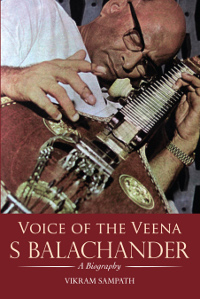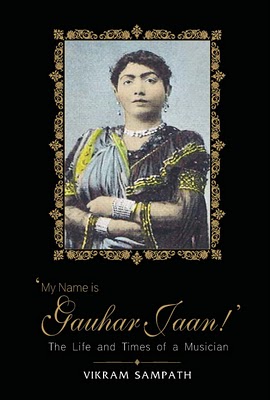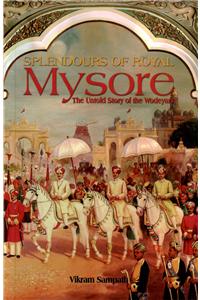Authors >> Vikram Sampath >> Poison in Her Breast: The Banished Girls of Nautch
Poison in Her Breast: The Banished Girls of Nautch
‘Hell is in her eyes; in her breast is a vast ocean of poison. Round her comely waist dwells the furies of hell, her hands are brandishing unseen daggers ever ready to strike unwary or willful victims. Her blandishments are India’s ruin. Alas! Her smile is India’s death’ (Keshab Chandra Sen, Social reformer, Bengal).
This was the popular narrative that dominated the social reform movement in the early decades of 20th Century India—a narrative that sought to demonize all performing women as immoral entities and prostitutes. This culminated in the ‘Anti-Nautch’ campaign that banished these women forever from the world of art and threw them, literally, into the bins of history. Performing arts were ‘resurrected’, sanitized and made safe for the middle classes. Bharatanatyam and Kathak sprung from the ashes of the Devadasis’ Sadir and the Tawaif’s Nautch, while Hindustani and Carnatic music were cleansed of their ‘erotic’ and immoral content.
In this shrill narrative, an important milestone in the history of Indian classical music has gone unnoticed and obliterated from national consciousness. When recording technology came calling in 1902, it was women largely belonging to this courtesan community that embraced it readily. The catalogues of the Gramophone Company, which came to India to record ‘native’ voices, clearly indicate close to 400-500 women from across the country who undoubtedly became the pioneers in recording. Their male counterparts shied away citing superstitious beliefs. Some were wary of sharing the secrets of their art by selling it cheap. The manner in which these women negotiated their engagement with the foreign companies and got their act together showed their shrewd business skills in addition to their proficiency in the medium of music to be able to compress it all in a 3 minute gramophone disc. Indian music would not have taken a giant leap forward towards modernism and broken out of the shackles of closeted patronage to global mass media, but for the brave attempts of some of these women. Yet, sadly, their names bring in no recall today in the world of musicians—both Hindustani and Carnatic.
This book seeks to bring these women back into public reckoning by piecing together fragments of their lives and situating it in a socio-cultural context of 20th Century India. Beginning with tracing the tradition of the courtesan in India right from the ancient period to the time they made their first brush with technology, it would take the reader through the kaleidoscopic world of the Tawaif/Devadasi. The lives of about 20 women would be dealt with in detail, set against the places of their origin and the aristocratic/ urban/ royal patronage that existed there. Gauhar Jaan of Calcutta, Janki Bai of Allahabad, Malka Jaan of Agra, Mumtaz Jaan of Delhi, Vidhyadhari Bai of Banaras, Husna Jaan of Banaras, Binodini Dasi of Calcutta, Giribala Dasi of Calcutta, Bedana Dasi of Calcutta, Krishnabhamini of Calcutta, Zohra Bai of Agra, Mohamdi Jaan of Lucknow, Bai Sundara Bai of Pune, Mehboob Jaan of Solapur, Bangalore Nagaratnamma, Salem Godavari, Coimbatore Thayi, Dhanakoti of Kanchipuram, Tiruchendur Shanmukhavadivoo and Oomda Jaan of Hyderabad are the women who would be profiled. The royal courts of Delhi, Lucknow, Rampur, Hyderabad, Baroda and Mysore, the urban centres of Madras, Calcutta and Bombay and the Freedom struggle would form the foil to their stories. The book would end with the Anti-nautch movement, the fall from grace of these women, the transition that many of them made in society and in their personal lives (case studies being those of M S Subbulakshmi, Siddheshwari Devi, Begum Akhtar etc.) and the disappearance of the memories of those that did not adapt to changing times. It would also bring to light some of the exquisite poetry of the courtesan and come along with a CD of some of their select tracks.
Agent: Anuj



